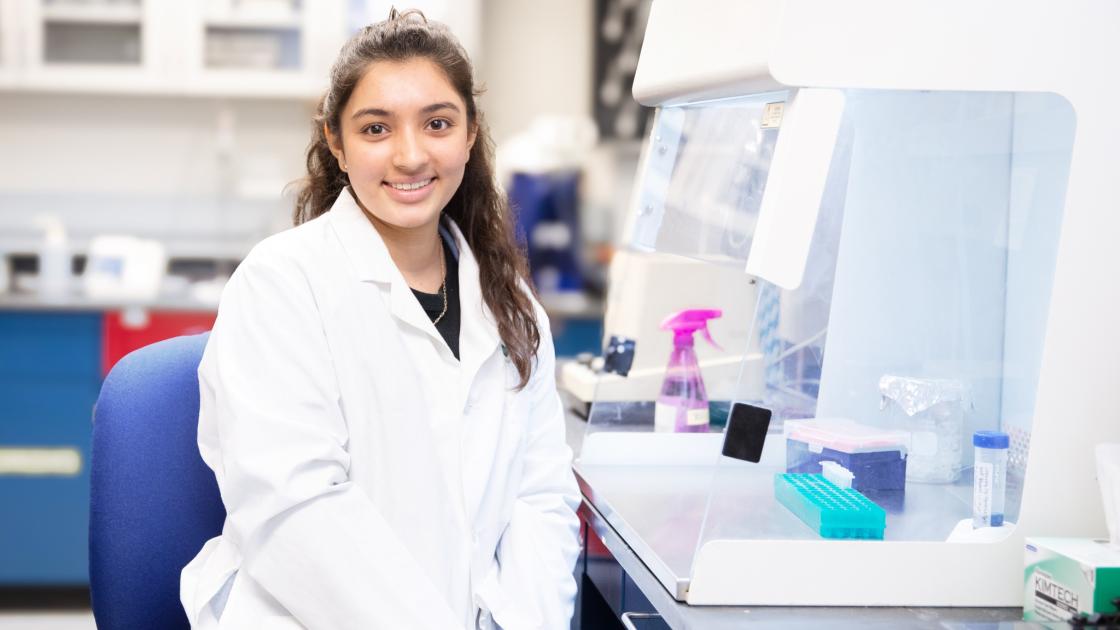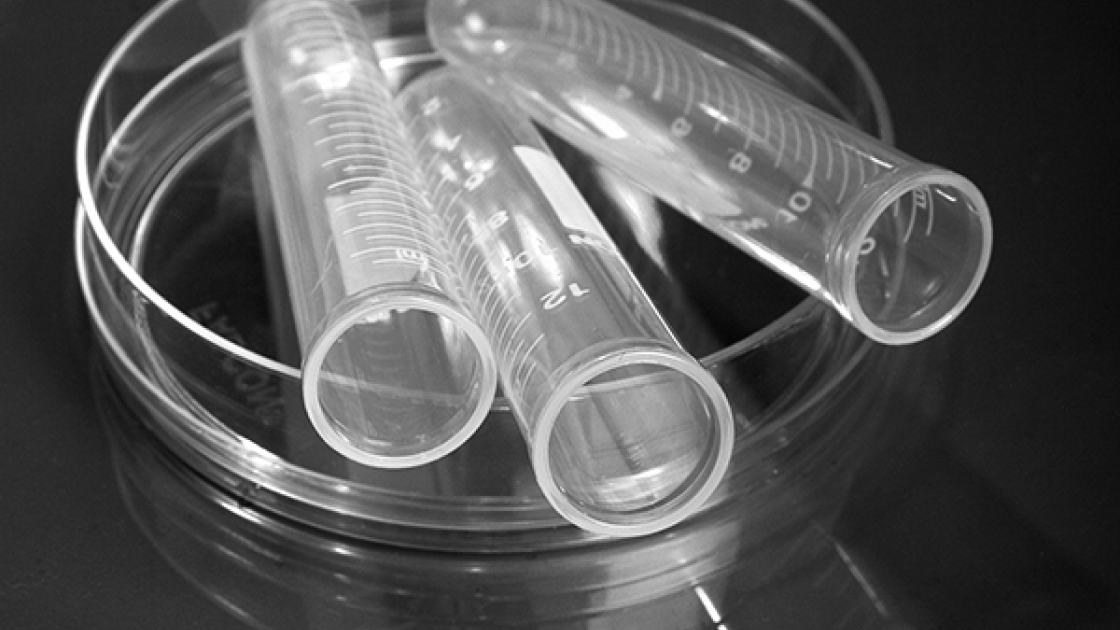
Andrew Wilber, PhD
About me
Contact
phone: 217.545.8098
awilber@siumed.edu
Dr. Wilber is an associate professor in the Department of Medical Microbiology, Immunology and Cell Biology, director of the Molecular Biology, Microbiology and Biochemistry (MBMB) program, and chairman of the Infection Control and Safety committee. He is a member of the American Society for Hematology and American Society of Gene and Cell Therapy for which he serves on the New Investigator Committee (2011-2016).
Research Interests
Developmental erythropoiesis, hemoglobin gene regulation, gene delivery using viral (lentivirus) and non-viral (transposons) integrating vectors, stem cells, anti-tumor immunity
Research Focus
Gene Therapy for Severe Hemoglobin Disorders
The goal of this research is to utilize lentivirus-based gene delivery in adult human CD34+ hematopoietic progenitor cells to enhance expression of the γ-globin gene and production of fetal hemoglobin (HbF) as a curative therapy for patients with b-thalassemia and Sickle Cell Disease (SCD). To this end, we utilize an in vitro culture model of human erythropoiesis to monitor production of HbF following lentivirus-mediated delivery of (i) an exogenous γ-globin gene, (ii) a trans-acting factor GG1-VP64 designed to induce transcription of the endogenous γ-globin genes and (iii) shRNAs targeting the γ-globin gene repressor protein BCL11A.
Factors and Mechanisms Influencing Expression of Fetal Hemoglobin
The goal of this research is to uncover novel factors and mechanisms that influence the expression of HbF in human erythroid cells. We developed an in vitro erythroid culture system utilizing primary human CD34+ hematopoietic cells as a seed population which can be differentiated into late stage erythroblasts over a 20 day period. We found that fetal liver CD34+ cells give rise to late stage erythroblasts which exclusively express HbF, while erythroblasts derived from adult CD34+ cells express HbA. Using these two cell populations, a series of comparative studies are being performed to identify differences in the protein-DNA interactions at the β-globin locus and differences in the mRNA, microRNA (miRNA) and long non-coding RNA (lncRNA) transcriptomes.
Anti-tumor Immunity
The goal of this research is to understand the role of tumor-mediated production of soluble factors in suppressing the cytotoxic activity of natural killer (NK) cells. Our studies are based on the notion that soluble factors produced by tumor cells fuels tumor progression through direct recruitment or trans-differentiation of NK cells with angiogenic properties. Initial studies being performed using a novel syngeneic mouse model of renal cell cancer (RCC) and patient-derived renal tumor tissue. These efforts could paradigm shift the generalized role of NK cells in tumor biology, whereby, prevention of these processes may be an interesting goal of future tumor therapy.
Gender
Education & training
Grants
Patient Oriented Grant SIU School of Medicine A. Wilber (PI) 12/31/16-12/30/17
Noncoding RNA-dependent regulation of Fas splicing in myelodyplastic syndromes;To achieve a mechanistic understanding of non-coding RNA Fas-antisense 1 (Fas-AS1) and its interacting partner human splicing factor (SPF45) in patients with myelodyplastic syndromes.
Role: PI
SIU Cancer Research Fund A. Wilber (PI) 12/31/15-06/30/17
Identification of metastatic molecular signatures in monocytes and NK cells from human breast and renal cancers using a novel inflammatory gene array; To achieve a mechanistic understanding of pro-vascular reprogramming of immune cells in cancer patients and identify concrete targets to suppress this process
Role: PI
Patents
A. Wilber and M.C. Schneider. Therapeutic regulation of Deoxyribonuclease-1-like-3 activity. U.S. Patent No. 359,619 (February 26, 2003).
Awards
Medical Microbiology, Immunology and Cell Biology (MMICB) Department Teaching Award 2016
Young Medical Innovator-Sangamon County Medical Society (Cancer Research) 2016
Academy Scholar for Innovative Teaching SIU School of Medicine 2016
Young Investigator Award-Cooley’s Anemia Foundation 2015
Medical Microbiology, Immunology and Cell Biology (MMICB) Department Teaching Award 2014
Young Medical Innovator-Sangamon County Medical Society (Hemoglobin Research) 2013
American Cancer Society Research Mentor 2011-2013
St. Jude 2nd Annual Postdoctoral Fellows Retreat Best Oral Presentation 2007
NIH/NCI 1st Annual National Graduate Student Research Festival 2006
Dirk van Bekkum Award International Society of Experimental Hematology 2006
Student Travel Award: International Society of Experimental Hematology 2006
Excellence in Research Award: American Society of Gene Therapy 2006
Related articles

SIU medical student awarded national research fellowship for work on cancer-fighting immune cells

A Torry Testimonial

